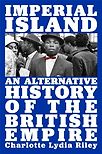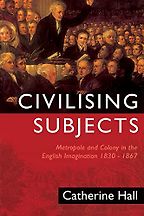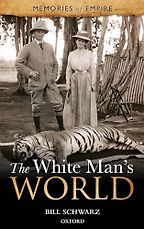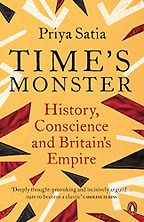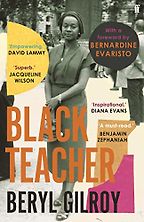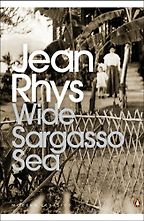Thanks for putting together this list of five best books about British colonialism. Let’s define our terms: how are you distinguishing between colonialism and imperialism? What criteria did you use in compiling this list?
I don’t know how academic a distinction this is, but I tend to think of imperialism as a top-down history, and colonialism as more of a bottom-up history; a history which thinks about the experiences of the colonised and the colonisers. It’s a British list, which considers the experiences of the population in the metropole – you could do a whole other list about other empires, and about colonial populations and subjects. I was thinking a lot about books that centre what’s called the ‘new imperial history’ as a movement. This emerged in the 1990s, and it is the idea that Empire shapes the nation at the centre of the empire as much as it shaped the periphery. It’s not so much about power structures. It’s much more about experience, and it shifts the focus back to the metropole to look at how Britain was shaped by imperialism.
So, when you’re thinking about British colonialism as a subject, you’re not limited to the specific time period in which Britain had an empire. You’re thinking in a more expansive way.
Definitely. More recently, there’s been a shift to move this new imperial history movement on to thinking about decolonisation. If Empire really impacted the metropole, if it really changed British people’s lives – and there’s certainly lots of evidence for that in terms of economy and politics, as well as in cultural and social ways – then you would have to assume that decolonisation also has an impact. But decolonisation history doesn’t really exist as its own topic.
The first book on British colonialism that you’d like to recommend is Civilising Subjects: Metropole and Colony in the English Imagination by Catherine Hall. Can you tell me about that book and why you chose it?
Catherine Hall is one of the most important historians working in Britain today. She’s very well thought of both within the profession and outside but I think she should be even more so. This book came out in 2002 and it was really important in in pushing this shift in the scholarship, to thinking about how Empire affected the British at home. It explores an earlier time period than the rest of my list: 1830 to 1867. This is a point of imperial expansion, and Hall argues that this process was intrinsically bound up with the definition of modern Englishness. English people learned how to be English, what it meant to be English, through the experience of colonialism. This is partly to do with the construction of the English nation as one of white citizenship.
This period – 1830 to 1867 – is also when you have the beginning of the expansion of the vote to middle-class people, and when slavery ends in the British colonies. Elsewhere, Hall has worked more broadly on tracing the impact of slavery in Britain. But this book is actually set just after that moment, at a time of imperial consolidation. She argues that what’s important is that English people learn to define themselves as English against people of colour in the Empire. She talks about the Aboriginal people or what tend to be defined at this point as ‘Negro races,’ and this sense that whiteness is really important to the understanding of ‘civilisation’ for the British. She describes how by the 1860s, Britain has developed a sense of racial hierarchy and race science. The book is about the experience of imperial expansion and increasing awareness of Empire, how it hardens and solidifies ideas about how to be English in the metropole, and then how that really shapes the rest of the 19th century.
You say her work really pushed a shift in the scholarship. How does it compare to the dominant modes of thinking about colonialism that came before?
Beforehand there had been a lot of work on Empire which was very much about the nuts and bolts of power. There was lots of work by people like Ronald Robinson, John Gallagher, or John Darwin about how colonies were captured, incorporating military and political history. Whiteness is very much just accepted in those accounts of colonial power; it isn’t seen as something contested or constructed. The overriding impression is that imperialists are white, and they’re going around the world and conquering places that aren’t. Whereas Hall is arguing that actually, in the 1830s and 1840s, there’s more complexity to the way that people are beginning to understand what their identity means and that it’s co-constitutive. Her argument is that there wasn’t a fully fixed and formed sense of English civilisation which was taken around the globe. In fact, this idea of English civilisation is formed through the experience of colonialism.
“I tend to think of imperialism as a top-down history, and colonialism as more of a bottom-up history; a history which thinks about the experiences of the colonised and the colonisers”
In all of her work, Hall incorporates women’s history. One thing that she does very well in this book that people hadn’t really done before is think about women as agents of Empire. She talks about a group of missionaries, for example, and the role of women within that, as well as the role of women in the black communities that missionaries are going to. She thinks about women as historical actors. If you’re writing a history of Empire which is about conquest and politics, in the 19th century, women don’t really come into it. That’s another way in which she really shifted the norms.
Whiteness is also a key theme in your next book, The White Man’s World by Bill Schwarz.
Schwarz basically picks up the story of decolonisation. He and Hall have worked together very closely as historians. The new imperial historians are part of a collective and their work intersects with each other’s. What Schwarz does in White Man’s World is explore the concept of white masculinity and what it meant to be a white man, from the middle of the 19th century. He’s almost beginning where Hall’s ends, but he goes right through to decolonisation. He starts his analysis with Enoch Powell’s Rivers of Blood’ speech in 1968, and then goes back in time and works back to it. He talks about Powell as having a particular identity of racial whiteness that he’s invoking in that speech and through his invocation of “a quite ordinary man”, who can only be understood as white by the audience. Schwarz argues that even though Powell himself is not really a supporter of Empire – he’s a Little Englander who basically wants decolonisation to happen – he can only really exist as a politician because of this century of imperialism that’s come before him.
Schwarz looks at the settler colonies as spaces in which whiteness is particularly forged: Australia, New Zealand, Canada, South Africa. He argues that whiteness as an identity became particularly solidified and coherent in those spaces: settler-colonialists really do have that colonial ‘other’ very close to them. Schwarz argues that this is imported back to Britain. By the 1960s, whiteness becomes a defensive identity. It starts to be seen as something under attack, with politicians commonly using language like ‘swarms’ of migrants or invoking the idea of Britain being “deluged” or “swamped”.
In recent years, there’s been some public debate over “whiteness” and the question of who gets to be the default identity.
A lot of humanities academics approach the idea of racial identity as a construction. I’ve had conversations with students, who are initially quite clear that races are biologically specific. When you start to talk to them, it’s easy to get them to see this isn’t true at all. There’s no way of definitively sorting people into racial categories, because race is constructed.
It’s interesting. When I was working on my book, I capitalised “Black”. I had a conversation with the publisher about whether I should capitalise “white” as well, because I would be talking about it as an identity, and in some ways that makes sense. There’s a whole conversation in America about whether this is appropriate. But on the other hand, I always feel like it looks a bit white supremacist to put “White” with a capital W. In the end, I’ve got “Black” with a capital B and “white” with a lower-case w. I’m sure no-one reading the book will notice. But it’s a funny thing. if you accept that one of these identities is constantly constructed and questioned and talked about you do have to accept the other one is too. It’s logical.
Your next British colonialism book, Priya Satia’s Time’s Monster: History, Conscience and Britain’s Empire, explores the role of historians themselves in Empire building.
Priya Satia’s brilliant book is about how historians were actually crucial to the building and justification of empire. It’s fascinating because imperial history has become completely entrenched in the culture wars, and there’s this huge battle about telling imperial stories, and about how we should tell them, what narratives we should be allowed to tell, what should be revised and what should be rewritten. Inherent to these arguments is the idea that historians didn’t used to have political agendas, and now they do. What Satia demonstrates in her book is that historians have always been political. But the point is they used to be political in service of the establishment, and Empire.
She picks out particular moments to show the development of history in the 19th century as an academic topic, and how that was framed through a Whiggish interpretation of explaining progress and how Britain had got to be top dog. There were lots of histories produced to give you lessons from past imperialism, or to demonstrate why it is that Britain’s Empire is doing so well. She describes how histories of Empire or specific histories – such as Gibbon’s The History of the Decline and Fall of the Roman Empire – were used to justify imperialism at moments of moral doubt. Her argument at the end of the book is that historians became less and less useful. There were anti-colonial thinkers – she talks about William Blake and also E.P. Thompson, who is a radical historian – whose work was used completely in service of the opposite position, to justify a push against power. So history fell out of favour of the ruling Imperial elites, because history started telling stories that didn’t really fit with their narrative.
We’ve already touched on the way that the history of Empire and decolonisation has become a culture war issue today. How do you see the current moment in relation to Satia’s book?
Satia tells a story about when historians themselves are really powerful. They’re partly powerful because academia was much more prestigious. It was a small group of elite white men who literally had the ear of policymakers, or people like Winston Churchill, who sees himself as a historian. Satia sets out this idea of historians as being immensely powerful in terms of how they shape national discourse and political processes. At the end of the book, she says that historians don’t have the ear of government anymore, because government doesn’t care about them. I think she’s right: today, historians, and academics in general, aren’t powerful. Historians are a much more diverse group of people, and we aren’t bending policy to our every whim. But if we do want to have influence, maybe we don’t want to have it over government anyway, maybe we should be trying to help other people. There are citizen protest movements who can really use historical tools to help them with their campaigns.
Something you explore in your own book Imperial Island: A History of Empire in Modern Britain is the strong sense of nostalgia around Empire. Does that feed into defensiveness around re-assessing these histories?
Yes, absolutely. People tend to be nostalgic for a point of Empire they haven’t themselves experienced. They’re not nostalgic for decolonisation, which actually many, many people alive today lived through. I think this shows the importance of Catherine Hall’s work, because Empire really has been critical in constituting what it means to be English or British. It stands to reason that when historians say ‘we need to be a lot more critical about this history’, of course, it’s going to upset people. It shows how important Empire was in setting out these identities. Bill Schwarz’s work shows how at the end of Empire, we’re left with this very defensive form of whiteness. Part of what it’s defensive about is these historical stories; trying to control the narrative to say that we civilised the world and we were better than the other European colonial powers and so on.
Your next book, Black Teacher by Beryl Gilroy, isn’t an academic work. It’s a memoir, first published in 1976. Why did you choose it?
I wanted to have a couple of books that were more like primary sources; things that help us to understand about Empire like or colonialism from, from a different perspective. This has recently been republished by Faber and Faber with an introduction by Bernadine Evaristo. As per the title of her memoir, Gilroy was a black teacher. She was born in Guyana, and came to Britain in 1952. She had trained as a teacher in Guyana and did more training at the Institute of Education in London. And then she couldn’t get a job as a teacher because she was black. There’s this lovely passage in the book where she describes how her employment prospects became ‘the matter’: she would send letters to people and ask to be considered for one of the hundreds of teaching vacancies in London. And she would get letters back saying, you know, “we have discussed ‘the matter’” or “we’re thinking about ‘the matter’”. They’re quite short chapters and it moves really quickly. She does lots of bad office jobs, and then she gets a job as a teacher. She experiences lots of racism from other teachers and from students, but eventually becomes head teacher in a school in Camden, at the time the only black head teacher in London. That’s the end of the book. She becomes incredibly successful in her career, has two children (one of whom is the cultural theorist and historian Paul Gilroy) and continues working whilst raising them. It’s a wonderful memoir of her experience of migration. In her introduction, Evaristo says Gilroy is one of the unsung heroines of black British literature. It’s extremely interesting as a historical source, but actually, it deserves to be more widely read because it is a wonderful piece of life-writing.
What do you think you get from a first-hand account like this? What does it tell us about colonialism?
Gilroy was born in Guyana when Guyana was British Guiana, a colony. She thinks of herself as British, does British teacher training and learns how to teach primary school children about British history and British literature. And then she comes to Britain and discovers that she’s just not welcome. It really demonstrates the power of the narrative in the colonies that Britain is the motherland, and you’re part of this imperial family. She comes to Britain in 1952 when it’s suffering from a labour shortage – especially in teaching – and post war devastation and immense poverty. Yet the defining experience for her is one of continuous racism. It stops her from getting a job that she’s very, very well qualified for, for years and years and years. Even when she gets into teaching, she constantly experiences this racism.
It shows you the difference between the image of colonialism from the people who are living in the colonies, what they were taught to expect, and the realities in the metropole, where people have no sense that all this is actually part of a quid pro quo. The British Nationality Act was passed in 1948, and when she comes to the country, Gilroy has the absolute right to live and work in Britain – but there’s no sense among the people she’s working with of that fact. They don’t understand how she’s there. They don’t know anything about Guyana where she comes from. It really shows you the fundamental inequality, not just economically or racially but also inequality of interest and understanding.
Your final choice is Wide Sargasso Sea by Jean Rhys, a novel. Why have you recommended this book in the context of British colonialism?
Jean Rhys is a white writer who was born in the colonies, and later moved to Britain. Wide Sargasso Sea is a reimagining of Jane Eyre from the perspective of Bertha, Rochester’s first wife. She’s described as a white Creole heiress, with Creole in this context meaning that she is too connected to Caribbean culture to be seen as culturally ‘white’ by the British Rochester. She sets it in the 1830s and 1840s, just after the abolition of slavery in the British colonies, and she re-christens Bertha as Antoinette. The reason you can reimagine Jane Eyre in this way is because Jane Eyre is an immensely colonial novel. The colonies pop up in it all the time. When Jane inherits money, it is from her uncle who’s made money in Madeira. At one point her cousin wants her to marry him and go to India to work as a missionary. Rochester has indeed met his wife in the Caribbean and brought her back to Britain. This shows you the extent to which colonialism permeates British society, the extent to which you can see colonialism as important even to the stories which we don’t think of as colonial.
What Jean Rhys does is a post-colonial retelling. She draws out the themes that enable Antoinette to be cast as mad. And this madness is based – a little in Jane Eyre and quite explicitly in Wide Sargasso Sea – in a sense of the Empire as a corrupting space where white people make increasingly bad choices. There is a sense that you can’t go into Empire and come back unscathed. Antoinette and her family are caught between Europe and Jamaica, between the Empire and the metropole, between the colonial and the civilized. Antoinette is stuck in the two spaces and moving between them feeds into the idea that she is mad. There is this idea that she can’t exist in either.
Are there ideas, or aspects of colonial history, this that are better explored in fiction than nonfiction?
Antoinette’s family were initially slave owners and lost their slaves after abolition. They are Creole because they are Jamaican, but white, and they’re despised by everybody. The black Jamaican population see them as both former oppressors, and pitiful figures who are now lack authority. The British hate them because they are too Jamaican, they’re too colonial. You can write about that as a historical story; you could set out that narrative and say that this small group of people – slave owners who stayed in Jamaica – have this particular experience. But imagining it in a fictional narrative helps you to understand the feeling at the heart of all of this and this sense of dislocation.
The first part is set on the sugar plantation Coulibri, in Jamaica. The descriptions of Jamaica are so lush, but also dangerous. There is a feeling of over-ripeness. This plantation that used to be rich is now ailing. Plants are growing all over the plantation house and there’s fruit everywhere and insects humming, and it’s too hot. Rhys is writing about her own upbringing in Dominica there. She’s describing a Caribbean that she knows very well, and there wouldn’t necessarily be a place for that in academic writing; and she’s writing this novel in the 1960s, towards the end of her life. She moved to England from Dominica when she was 16, and she’s filtering English feelings about the former colonies through her writing. It tells you a lot more about how people see Jamaica in that moment than then just the facts.
We started off talking about how you think of colonialism not just as a time period, but as something essential to the construction of British identity. This idea that colonialism has shaped who we are and continues to shape who we are is often contested. Why do you think that is?
There’s real defensiveness, I think, because of the assumption that when historians say ‘British society is shaped by Empire’ that they are implying that you and your life are shaped by Empire, and therefore you are a bad person. That’s not what historians are saying. We are saying that in order to understand, for example, British citizenship law, you have to understand imperialism, or to understand the education system or the police you have to understand imperialism. It was an important social structure at the times these things were set up and so inevitably shaped them and impacted them. You can’t talk about migration in Britain without talking about Empire, because you can see how migration was shaped very, very obviously by the structures of Empire and decolonisation. I think this defensiveness is very telling. People are really projecting their own assumptions. They want to defend their feelings about Empire, and the idea that the British Empire specifically has been liberal and good and civilisational and humane, but it simultaneously is apparently something that wasn’t that important and can be now completely forgotten and never talked about again. It doesn’t make sense.
Five Books aims to keep its book recommendations and interviews up to date. If you are the interviewee and would like to update your choice of books (or even just what you say about them) please email us at [email protected]
Five Books interviews are expensive to produce. If you've enjoyed this interview, please support us by donating a small amount.

